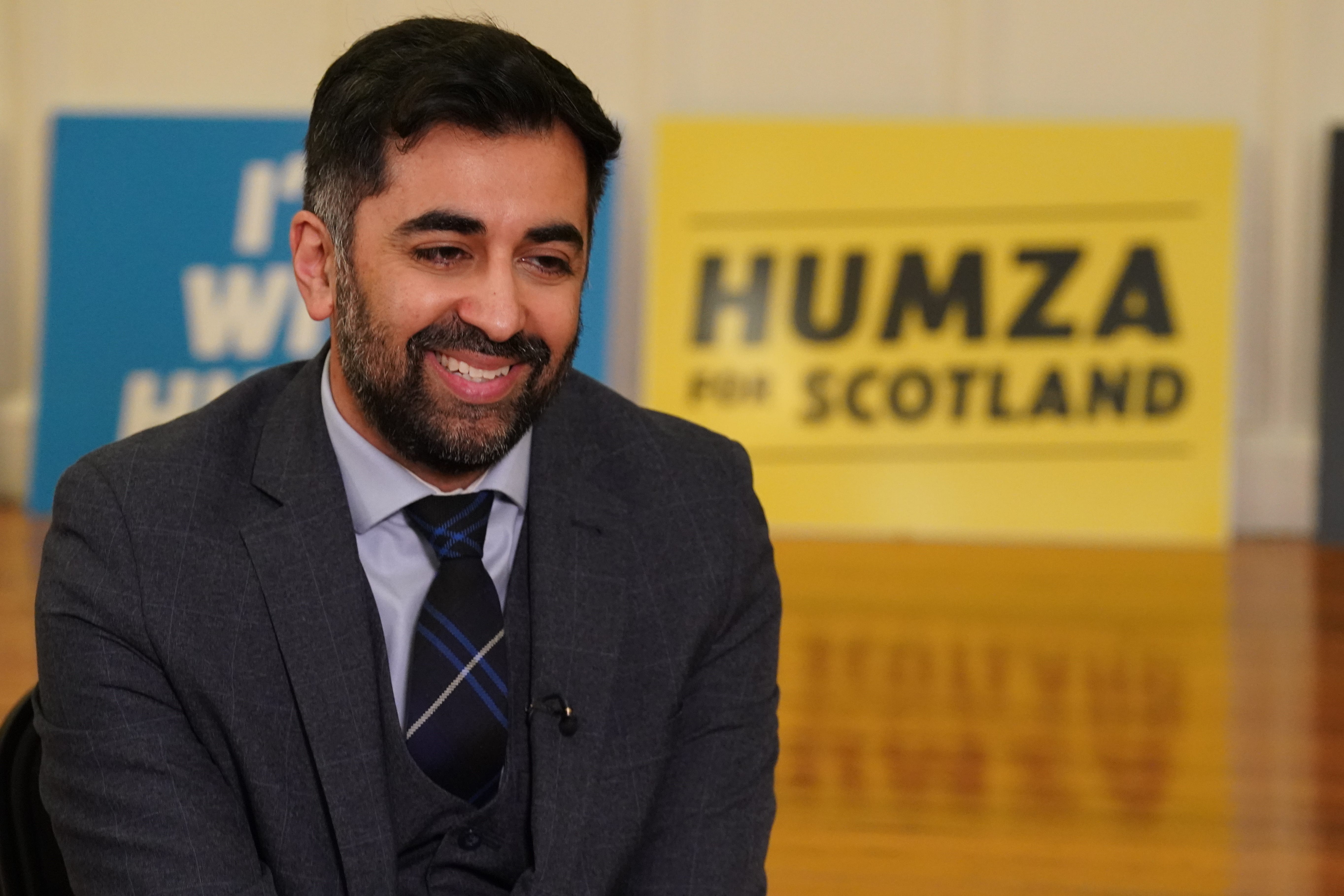Race to replace Nicola Sturgeon takes a personal turn
Sean O’Grady considers the field in the contest to lead the Scottish National Party


The race to succeed Nicola Sturgeon as SNP leader and first minister of Scotland is taking some unexpected turns. Some of the most obvious successors to Sturgeon have ruled themselves out, and issues of conscience have so far eclipsed debate about economics, social policy and even independence itself.
Who has the best chance of winning the SNP leadership?
If you believe the bookies, then it’s the Scottish health secretary Humza Yousaf. This is slightly curious, because he has become a controversial figure during his time in that post, and wasn’t the most obvious candidate to succeed Sturgeon. Even so, he is emerging as the most assured of the available (and thinning) field, and has said he doesn’t use his faith as a basis for legislation, after rival Kate Forbes revealed she would have voted against the Scottish parliament’s same-sex marriage bill (which became law in 2013).
Yousaf is actually non-committal on how he’d achieve the goal of independence. He wants a debate, and says he isn’t “wedded” to Sturgeon’s policy of using the next general election as a de facto referendum on the subject. That’s probably just as well, given the possibility that the SNP will slip back next time round, though it might not lose many seats overall because it is also likely to benefit from the current Conservative collapse. Labour’s revival might well erode the SNP vote in the central belt.
At the moment, the contest is Yousaf’s to lose. If he does succeed, it will be another remarkable achievement for a British politician of colour, alongside the accomplishments of Rishi Sunak and Sadiq Khan.
Who’s ruled themselves out?
Two heirs apparent, at least. John Swinney, a lacklustre former finance minister and deputy first minister, was long the default choice if any stray Edinburgh tram should dare to try to take on Sturgeon, but a long series of policy failures means his time has passed.
Angus Robertson became a more familiar figure across the UK when he headed the SNP group at Westminster, a job he held from 2007 to 2017. The guaranteed slot at Prime Minister’s Questions, along with the parliamentary drama during the early stages of Brexit, gave him an unusually high profile, and he was an impressive enough performer.
He lost his Westminster seat at the 2017 general election, but has since been elected to the Holyrood parliament, and was trusted with the constitution (ie independence) brief by Sturgeon. Like Swinney, Robertson would probably have been more of a “continuity Sturgeon” candidate. Perhaps he sensed that the party would benefit from a change of tactics, if not direction, as well as style.
The current leader of the SNP MPs in London, Stephen Flynn, has made a favourable impression with Westminster-watchers, and it’s fair to say he may have had some differences with Sturgeon about the SNP’s priorities. A formidable act at PMQs, armed with a dry wit and a scornful delivery, Flynn would have made for an energising choice, but obviously he too feels that the time is not yet ripe. The SNP has few figures of his calibre.
Justice secretary Keith Brown, along with MSPs Neil Gray and Mairi McAllan (minister for environment, biodiversity and land reform) are also non-runners.
What about Kate Forbes?
The SNP under Sturgeon has defined itself as the most liberal and progressive of the mainstream UK parties, an effort that culminated in the (perhaps deliberately) controversial Gender Recognition Reform Bill (GRRB), which was blocked (possibly as intended) by the UK government on legal grounds. The debate on trans rights has split the party, however, and Forbes has found herself in a distinct minority with her ultra-small “c” conservative views on gender self-identification, equal marriage, sex outside marriage, and having children outside wedlock.
After her public remarks, the otherwise popular finance minister, a young and confident performer, has seen former backers move away from her – and the odds on her success worsen considerably. Whatever her undoubted talents, she would be just as divisive a figure as Sturgeon.
Do the candidates differ much on independence?
Yes, and no. Yes, in the sense that they probably do have their own differing views on the best tactics and the party’s priorities as the Westminster election approaches.
Some will cleave to the Sturgeon position of treating the UK general election as an informal or proxy referendum on securing a second independence referendum, with a view to quickly holding it; others may decide to bide their time until public opinion comes around more firmly.
Others still, such as Ash Regan, want a more radical approach. Regan proposes holding a convention with Alex Salmond’s smaller breakaway Alba party, and any other pro-separation organisations, in order to create a wider movement. That might mean an unofficial referendum, to add to the pressure on a Westminster government, as well as regarding any majority for pro-independence parties at Westminster or Holyrood as a mandate.
Regan opposed the GRRB, and resigned from Sturgeon’s government in protest. She is backed by Joanna Cherry MP.
All the contenders will surely be conscious that the prospective arrival of a more pro-EU Labour government, and the departure of the unpopular Tory government, seen as responsible for Brexit, makes independence seem a little less urgent than hitherto.
But none of the candidates is very clear about their own preferred route forward, and all seem content to leave it to the party activists to decide, or leastways approve, the best next step at a party conference. On that they are agreed.
The next leader of the SNP is set to take over on 27 March. They have the remainder of the term Sturgeon won in 2021, which is due to end around May 2026.





Join our commenting forum
Join thought-provoking conversations, follow other Independent readers and see their replies
Comments